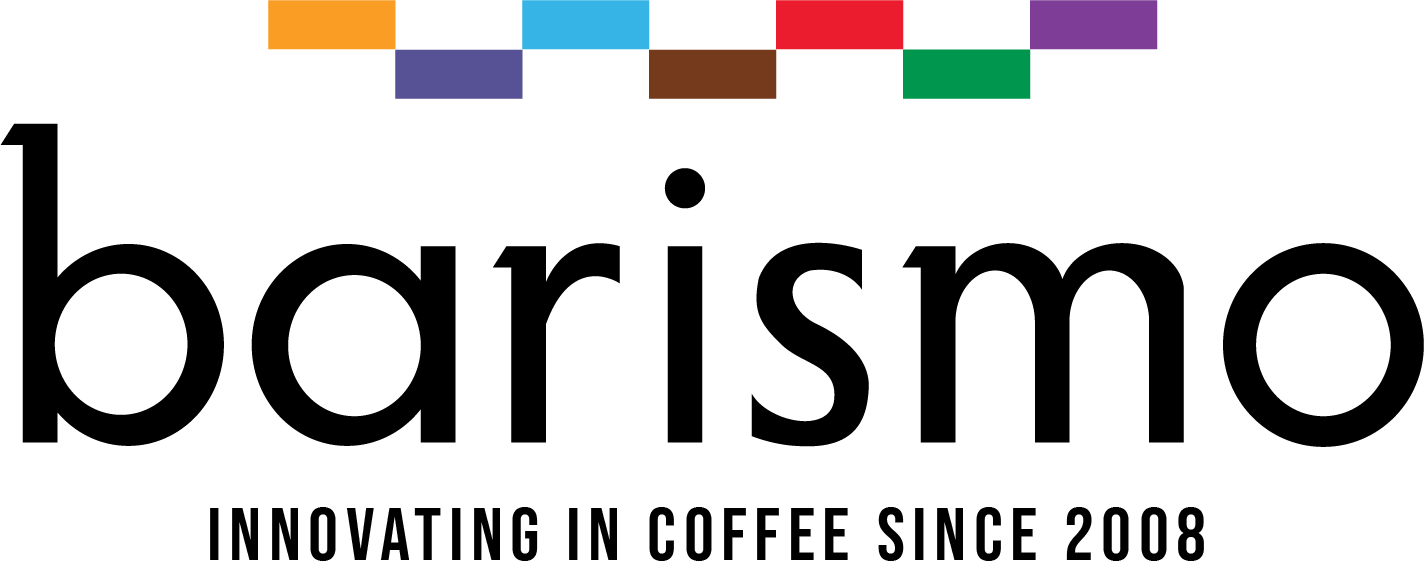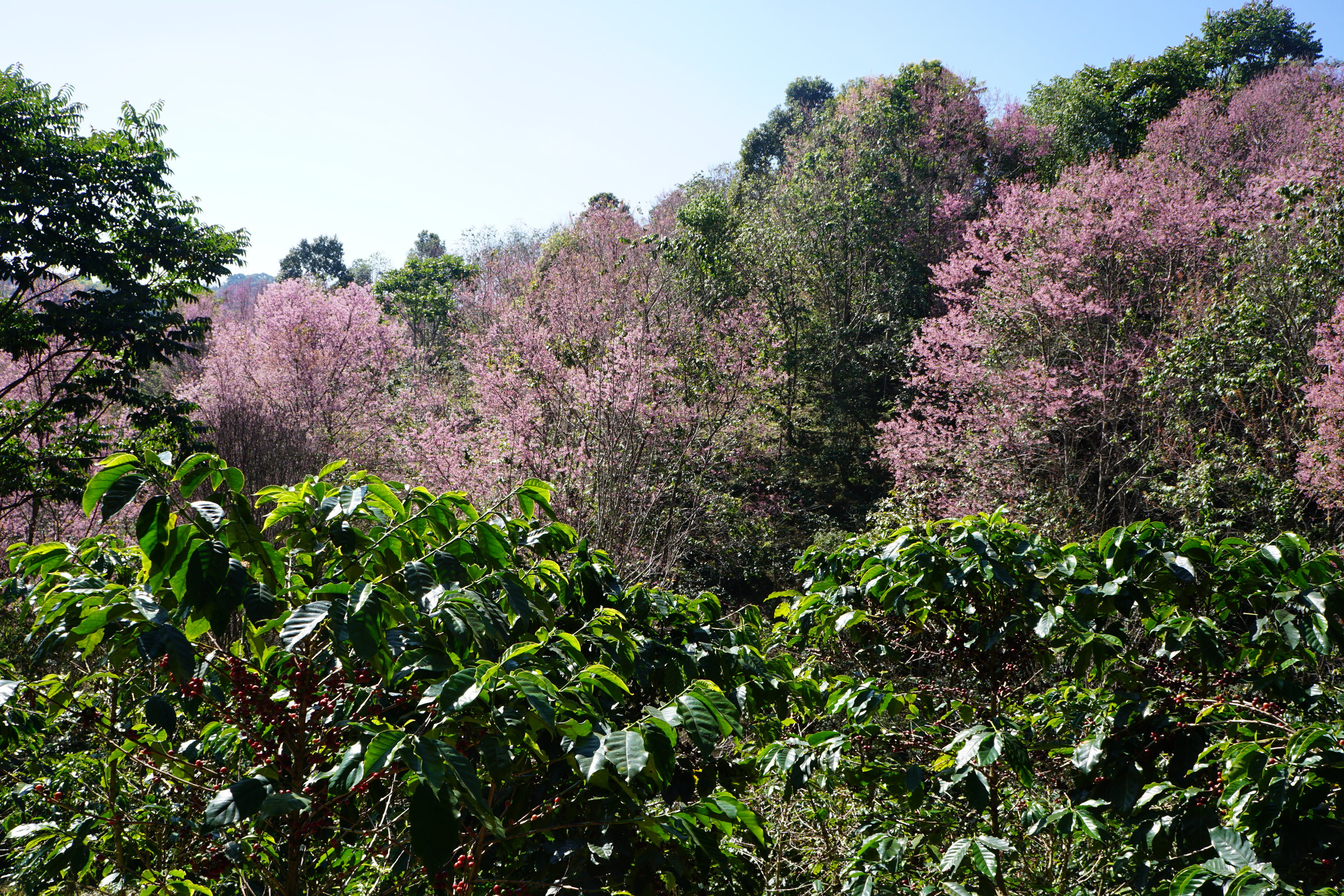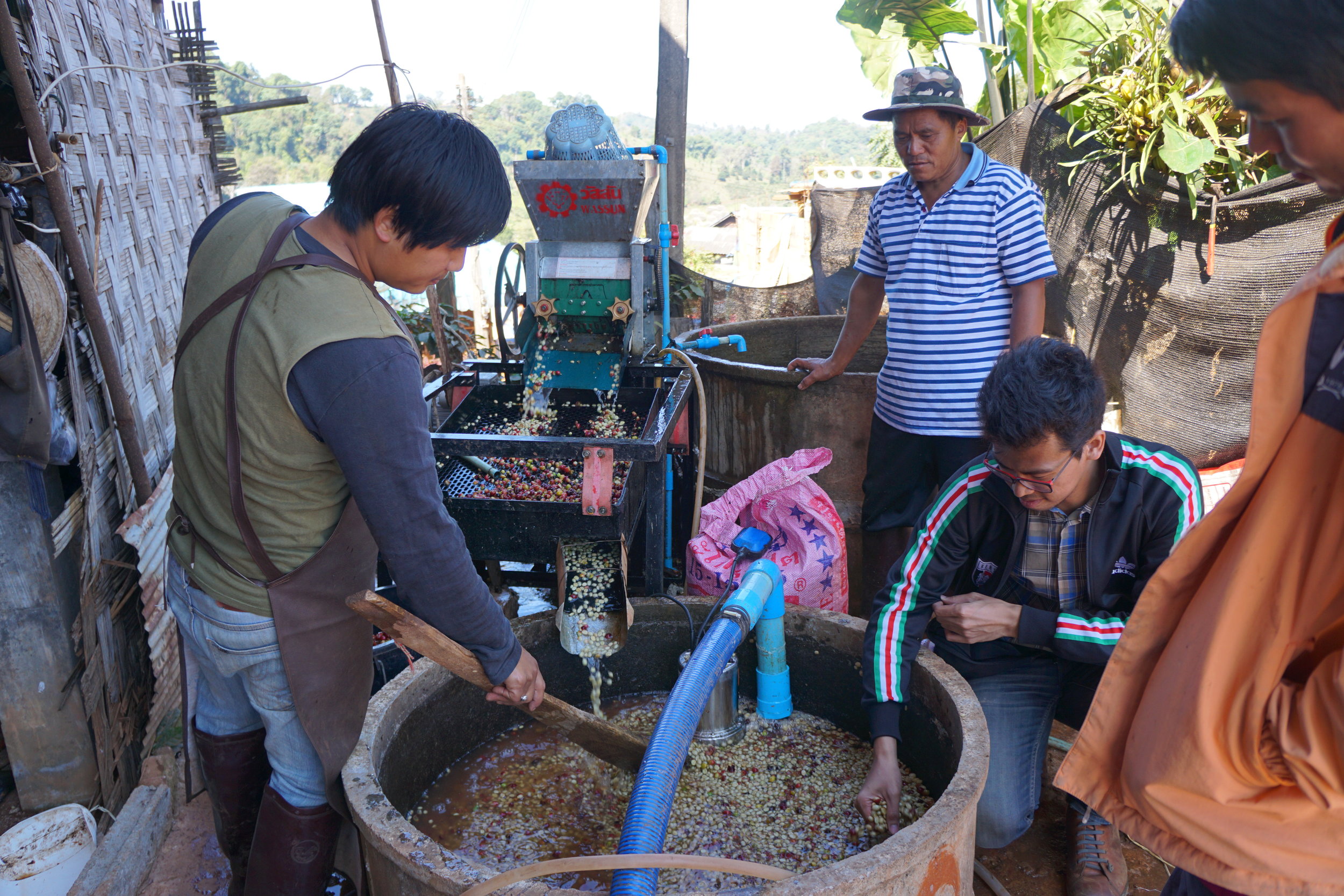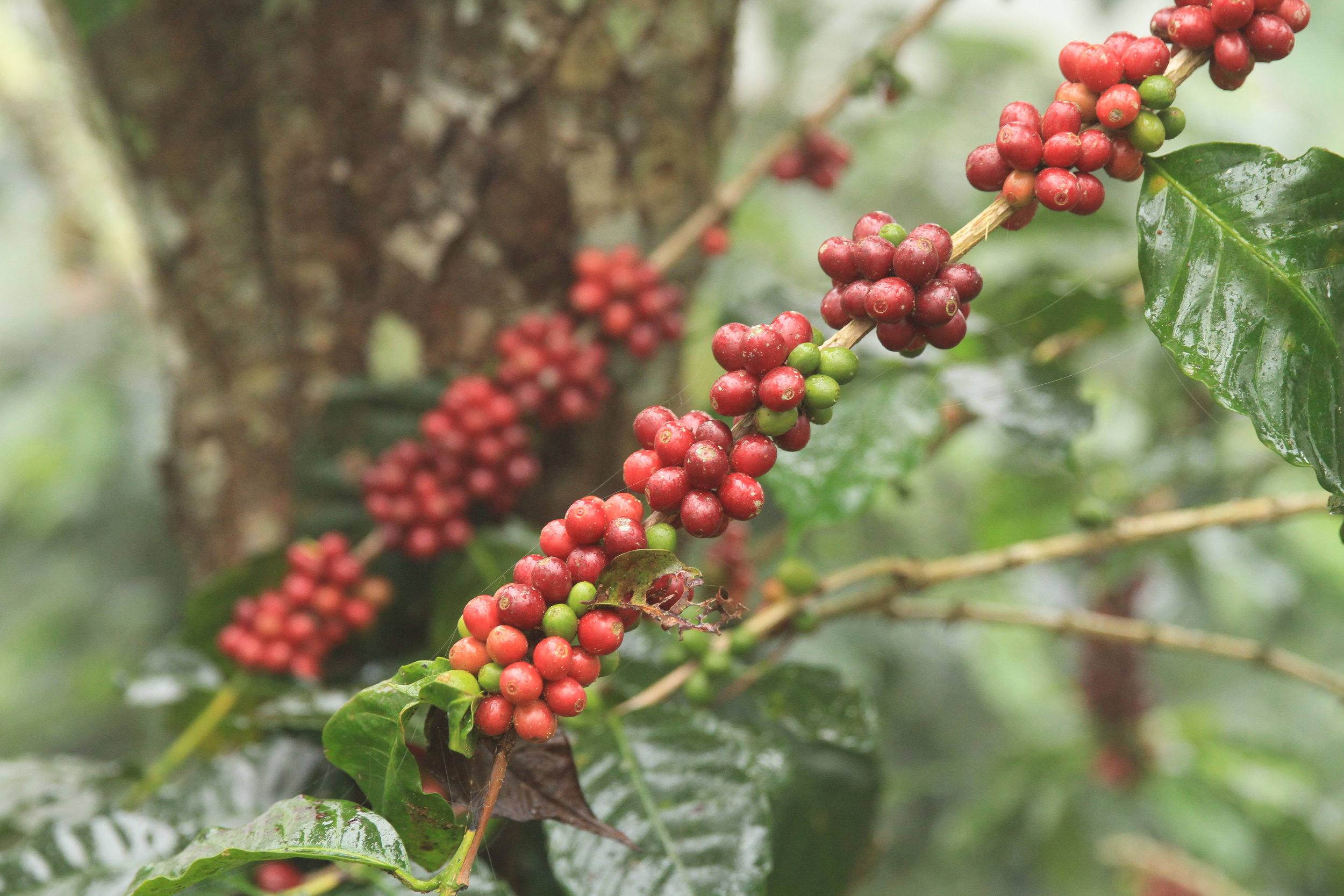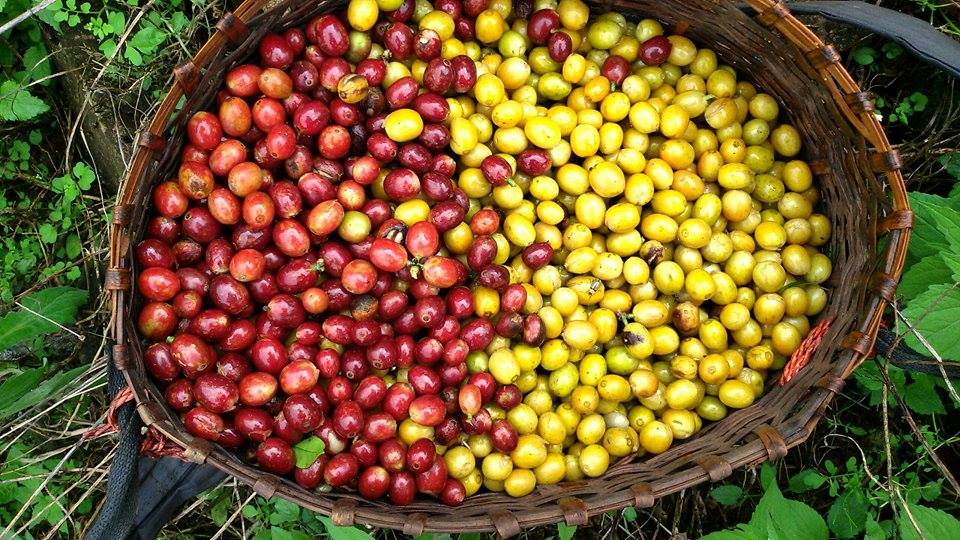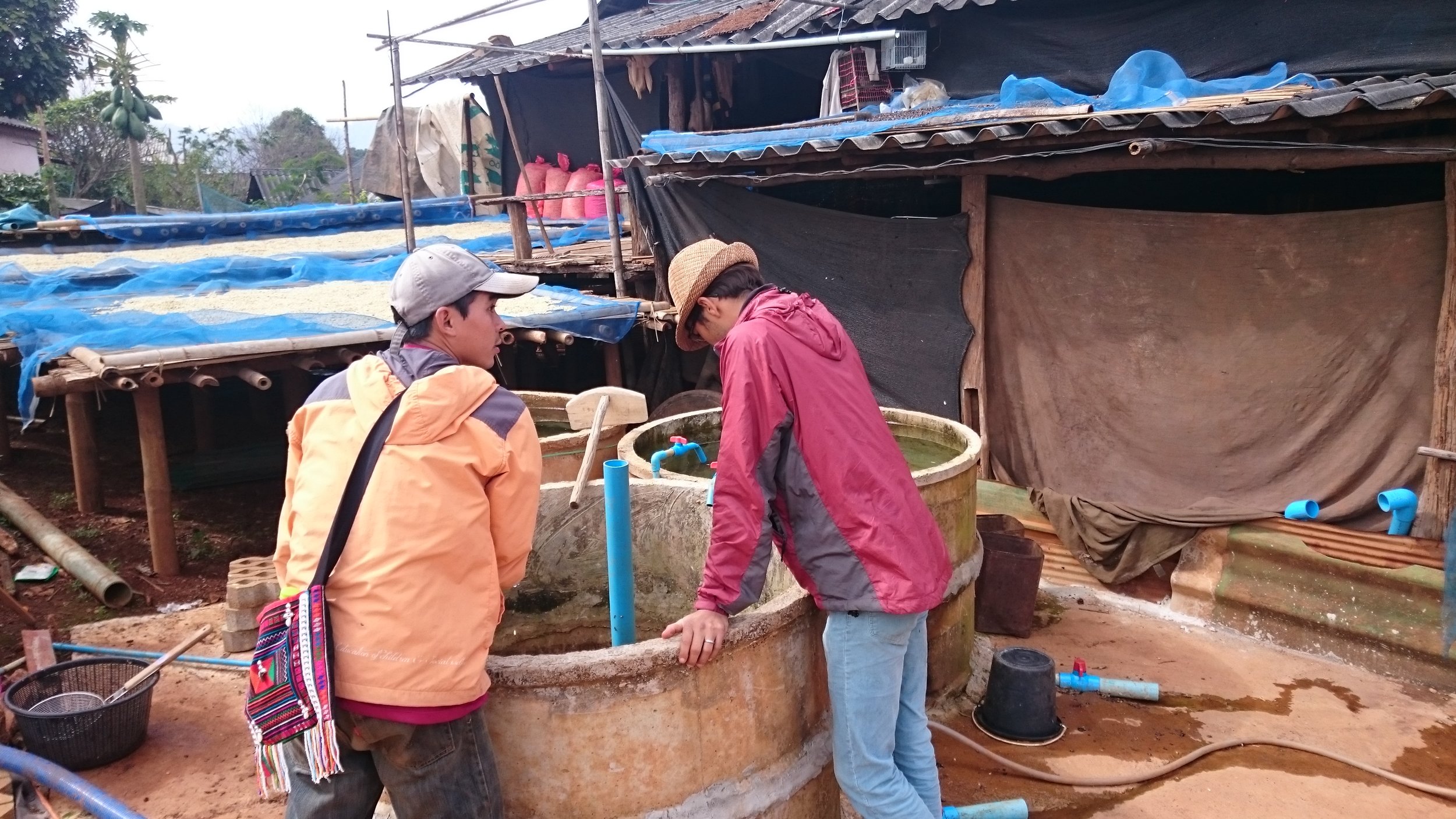Above: Coffee trees with cherry blossom in the background grown as a shade tree; coffee being pulped and immediately washed at the Beche family farm, which contributes to this lot; coffee ripening on the tree; picked red and yellow cherry; more fermentation tanks, with raised beds in background.
Doi Pangkhon
rich full body, honey sweetness, clementine & sweet lemon
| Producer | Various Small Land Holders |
| Region | Doi Pangkhon, Chiang Mai |
| Elevation | 1250 - 1500 meters |
| Process | Fully Washed & Dried on Raised Beds |
| Variety | Caturra, Bourbon, Typica, Chiang Mai 80 |
| Harvest | December 2015 - March 2016 |
| Storage | GrainPro™ |
| Relationship | First Year Direct Trade |
Several years ago we began working with the Mae Fah Luang Foundation on a development project in northern Thailand focused on creating economic opportunity through coffee and other crops, especially as an alternative livelihood in an area that in the past was known for growing opium. Over these years the growers in Doi Pangkhon have made great progress in improving the quality of their coffee, and we are glad to finally carry their coffees.
The majority of producers who contribute to this lot are extremely young, typically between 25-35. Coffee has been grown in this area for a long time (some families have been cultivating coffee for at least 40 years), but this is the first time it is being exported in a traceable way as specialty grade coffee. Because of the premiums that these high quality coffees are fetching, children who had left rural areas for larger cities are now returning home to farm. What's most exciting to us is that these young farmers are very open to trying new things to improve the quality of their coffee.
Nearly all producers are using a Kenya-style washing process, where after the coffee is pulped it goes through multiple rounds of fermentation and cleaned in between those rounds. Once washed, the coffee is dried on raised beds, then sent to the dry mill where it is again density sorted, screened and hand-sorted to pick out defects. The finished coffee packaging is particularly unique; rather than the jute fiber bags used in most of the coffee industry, they use a loosely woven polypropylene bag that contains an inner high-density polyethylene liner, and finally a GrainPro liner. In an area where high moisture is a concern, the coffee is kept especially safe in this triple-layer bag.
The farms themselves are extremely dynamic, with cultivated shade from various fruit trees. Most farms are relatively small, between 5-12 acres, so coffee is often grown alongside various food crops for additional income and subsistence. You'll find many different varieties being grown, including a locally cultivated hybrid of Catimor, Chaing Mai 80.
